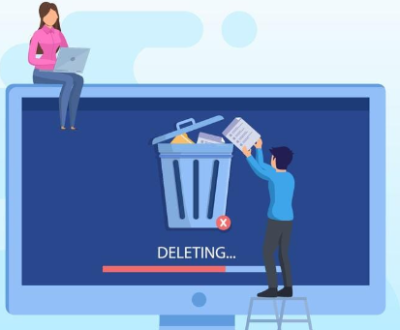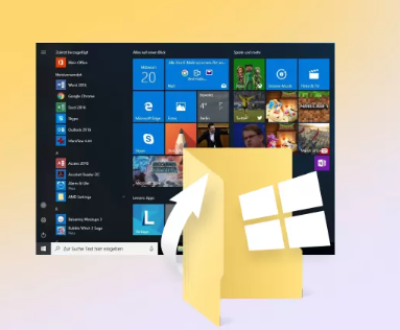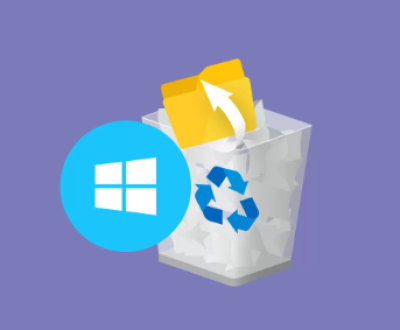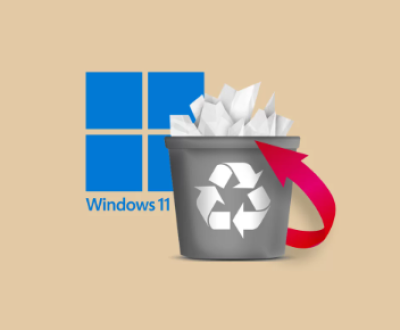Seattle, the Emerald City, is known for its tech-forward culture, innovative spirit, and breathtaking natural landscapes. With major corporations like Amazon and Microsoft headquartered nearby, the city pulses with digital activity from startups building next-gen technologies to photographers, students, and freelancers relying heavily on their devices. Amid this digital abundance, one common issue cuts across all user levels: hard drive failure. Whether it’s a failed laptop drive, an external hard disk with years of photos, or a corrupted business server, the need for hard drive data recovery in Seattle is more vital than ever.
The Scope of Hard Drive Failure
Hard drives, despite being among the most trusted digital storage media for decades, are not invincible. Their mechanical components and reliance on firmware, electronics, and precise calibration make them vulnerable to failure.
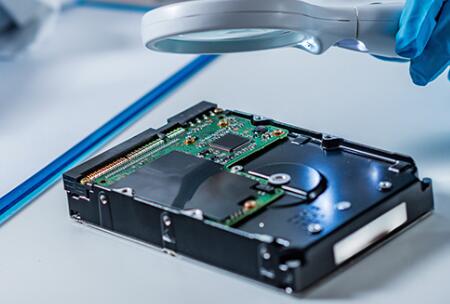
1. Common Causes of Hard Drive Failure
Mechanical Malfunctions: Wear and tear on moving parts like the read/write head or spindle motor can lead to failure. This is often indicated by clicking, grinding, or buzzing sounds.
Logical Failures: These are software-related issues, such as file system corruption, accidental formatting, or virus attacks that make data inaccessible.
Firmware Corruption: When the low-level software embedded in the hard drive becomes corrupted, the drive may not boot or may be misidentified by the system.
Electrical Damage: Power surges or faulty connections can fry the drive’s circuitry, requiring delicate repairs.
Environmental Damage: Exposure to moisture, heat, or physical shock (like dropping the device) can severely damage internal components.
2. Symptoms That Signal a Failing Hard Drive
Slow system performance or frequent freezes
Unusual noises (clicking, whirring)
The device is not recognized by your computer
Error messages like “Drive not found”
Corrupted or missing files and folders
Disappearing partitions
Recognizing these signs early can often save data and reduce recovery costs.
Types of Hard Drives and Their Recovery Nuances
Seattle’s diverse population of users—from coders to content creators—use a wide variety of hard drives, each with unique recovery considerations.
1. Internal Hard Drives
Standard in desktops and laptops, these may be HDDs or SSDs. Mechanical drives are particularly susceptible to physical wear, while SSDs can experience electronic or firmware-related issues.
2. External Hard Drives
Often used for backups and portable storage, these devices face higher physical damage risks from being dropped or mishandled. USB interface failures are also common.
3. Solid-State Drives (SSDs)
SSD recovery is more complex due to the way data is stored and erased using flash memory. Unlike HDDs, they don’t exhibit mechanical noise but can fail without warning.
4. Enterprise Drives (RAID, NAS)
In corporate environments, RAID and NAS setups use multiple drives for redundancy. If one or more fail, data loss can still occur, especially if improperly rebuilt.
The Data Recovery Process in Seattle
When a hard drive fails, immediate action is key. Seattle’s data recovery centers offer a standardized recovery process that typically includes the following steps:
Step 1: Evaluation and Diagnosis
This phase involves testing the hard drive to identify the root cause of failure. Some centers in Seattle offer this service for free or at a nominal fee. Advanced tools are used to examine the drive’s firmware, file structure, and physical condition.
Step 2: Quotation and Consent
After the evaluation, you receive a detailed quote outlining the cost, estimated turnaround time, and expected success rate. Reputable services operate on a “no data, no charge” policy, ensuring you only pay for successful recoveries.
Step 3: Data Extraction
Depending on the failure, data is recovered using specialized software for logical issues or hardware-level methods for physical damage. Cleanroom environments are used for opening and repairing drives.
Step 4: Verification
You are usually given a file list or snapshot to verify if the necessary data has been recovered. Some services even allow you to view or test small samples.
Step 5: Return of Recovered Data
Recovered files are delivered on a new external storage device or uploaded securely via encrypted download links. Original drives may be returned or securely destroyed based on your preference.
Seattle’s Top Hard Drive Data Recovery Services
Seattle is home to several trusted data recovery specialists. Here are some of the most reputable providers in the area:
1. Secure Data Recovery Services
Located in downtown Seattle, this company offers certified ISO Class 10 cleanroom environments, 24/7 emergency recovery, and a strong reputation. They specialize in all forms of hard drive recovery, including RAID and SSD.
2. DataTech Labs
Known for working with law enforcement and corporations, they offer a high success rate in recovering data from physically damaged drives. Walk-in service and free diagnostics make them a local favorite.
3. File Savers Data Recovery
This nationwide provider has a strong local presence. They offer transparent pricing, a “no recovery, no fee” guarantee, and extensive experience with Apple devices and Mac-specific hard drives.
4. Seattle Laptop
Primarily a repair shop, they also offer hard drive recovery services, particularly for laptops and personal devices. Affordable pricing makes them ideal for students and freelancers.
5. SalvageData Recovery
Located in nearby Bellevue, this provider serves Seattle residents with enterprise-grade recovery services, including forensic and legal recovery options.
How Much Does Hard Drive Data Recovery Cost in Seattle?
Prices for hard drive data recovery vary based on damage type, device complexity, and service urgency. Here’s a rough estimate:
Logical Failures (e.g., deletion, formatting): $100–$500
Mechanical or Physical Damage: $500–$1.500
RAID/NAS Recovery: $1.000–$5.000
Emergency Services: Additional $300–$1.000 for rush recovery (24-48 hours)
Always request a diagnostic report and formal quote before committing.
DIY vs. Professional Recovery: What You Should Know
When DIY Recovery Works
If your hard drive is functioning and the data loss is due to accidental deletion or mild corruption, you may use tools like Panda Assistant. These tools can scan for deleted files and restore them—provided no new data has overwritten the old.
When to Call a Professional
The drive makes clicking or grinding noises
Your system won’t recognize the drive
The device was physically dropped or exposed to liquid
You’ve tried DIY tools and failed
The drive is part of a RAID/NAS array
Attempting to recover a physically or electronically damaged drive without expertise may cause permanent data loss.
Business Data Recovery in Seattle
Seattle’s vibrant startup and tech ecosystem makes business continuity paramount. Professional recovery services support businesses by:
Restoring files from servers, RAID systems, or proprietary configurations
Rebuilding corrupted email servers, SQL databases, and accounting records
Offering emergency recovery to minimize downtime
Providing forensic recovery services for HR, legal, or auditing purposes
Many recovery providers in Seattle offer business support packages, data loss prevention planning, and custom SLAs to meet enterprise needs.
Cloud Backup and Recovery Integration
As cloud storage becomes more common, many Seattle recovery providers also help with:
Recovering data accidentally deleted or corrupted in cloud accounts like Google Drive, Dropbox, and OneDrive
Re-integrating recovered data back into cloud workflows
Educating clients on best practices for hybrid (local + cloud) backup strategies
Cloud platforms have their own retention and recovery rules. A professional service can help you navigate these systems after local drive failures.
Data Security and Confidentiality
Seattle’s leading data recovery centers emphasize security and privacy due to the sensitive nature of data involved. Look for providers with:
SOC 2 Type II compliance
HIPAA certifications for medical records
GDPR-compliant handling for global clients
Encrypted storage and secure data return protocols
Non-disclosure agreements (NDAs) are often available upon request, especially for businesses handling client or legal data.
Preventing Future Data Loss
Recovering your data is only the first step. To avoid future crises, consider implementing these preventative measures:
1. Use the 3-2-1 Backup Strategy
Maintain three copies of your data: two on different types of local media and one off-site or in the cloud.
2. Replace Aging Drives
Most hard drives begin to fail after 3–5 years. Monitor your devices using tools like CrystalDiskInfo or SMART monitoring software.
3. Invest in Surge Protectors and UPS Devices
These protect against power surges and outages that can fry electronics.
4. Be Mindful of Physical Handling
Avoid moving external drives while in use. Use protective cases and avoid exposure to heat or moisture.
5. Automate Your Backups
Use tools like Time Machine (Mac), Acronis, or Windows File History to schedule automatic backups.
6. Train Employees
For businesses, staff training in data handling, security, and incident response can greatly reduce the risk of data loss.
Unique Considerations for Seattle Residents
Living in Seattle introduces a few region-specific challenges and advantages when it comes to data recovery:
Weather-Related Risks: High humidity and seasonal rains can increase risks of moisture damage to devices.
Tech Accessibility: Being a tech hub, Seattle boasts early access to new recovery technologies and experienced professionals.
Academic and Research Needs: Students and researchers from the University of Washington often rely on data recovery services for thesis work and research data.
Creative Community: Photographers, musicians, and artists in Seattle often seek recovery for large digital libraries lost to drive failure.
Hard drive data loss is an unfortunate but often recoverable event. In Seattle, a city known for its innovation and digital fluency, the options for professional, secure, and effective hard drive recovery are among the best in the country. Whether you’re a business owner trying to restore customer records, a student salvaging a thesis, or a photographer retrieving years of memories, Seattle’s data recovery experts are ready to assist.
Acting quickly, choosing a reputable service, and implementing proactive backup strategies can not only help you recover what was lost but also strengthen your resilience against future loss. With the right support and foresight, you can navigate the chaos of hard drive failure with clarity and confidence.
About us and this blog
Panda Assistant is built on the latest data recovery algorithms, ensuring that no file is too damaged, too lost, or too corrupted to be recovered.
Request a free quote
We believe that data recovery shouldn’t be a daunting task. That’s why we’ve designed Panda Assistant to be as easy to use as it is powerful. With a few clicks, you can initiate a scan, preview recoverable files, and restore your data all within a matter of minutes.

 Try lt Free
Try lt Free Recovery success rate of up to
Recovery success rate of up to

